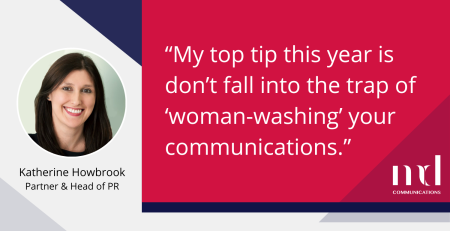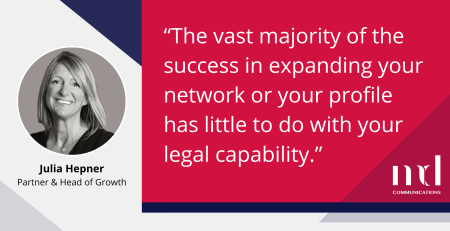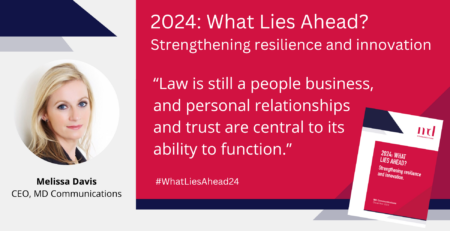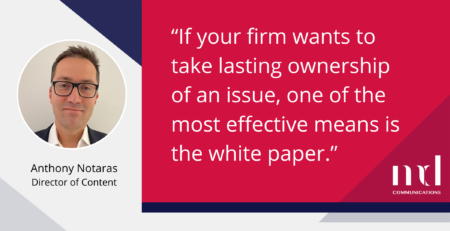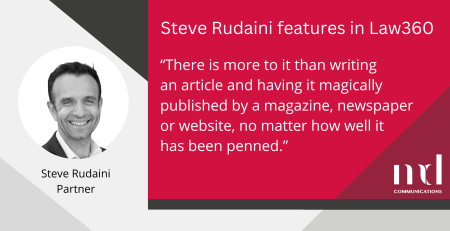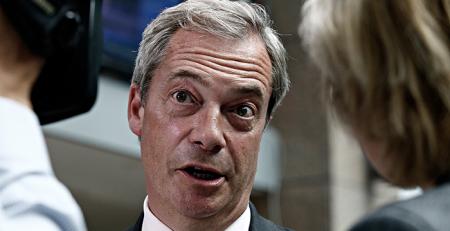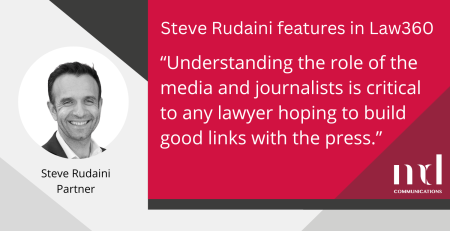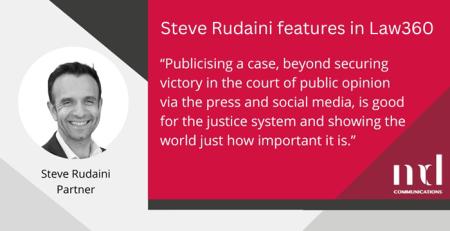Earlier this week saw our second #mdcmeetthemedia event – an evening of Q&A, war stories and reflections on journalism with a panel of four journalists.
On the platform were – Robert Verkaik, a freelance justice and security correspondent; David Barrett, the Telegraph’s home affairs correspondent, Bloomberg’s Suzi Ring, and Law Society Gazette features editor Eduardo Reyes.
They are all people I’ve known for upwards of a decade because legal-sector clients have been involved with their stories, but they brought very different experiences to the discussion.
Since our last event, the end of the Independent’s print edition had graphically illustrated the rocky economics of the media – realities that were front of mind for all present – cause for some reflection at the start.
An early question came from Michael Burd of Lewis Silkin who asked if journalism was a profession and who regulated it.
The Telegraph’s David led the response on this. ‘We’re a trade, not a profession,’ he noted, pointing out that unlike a profession, entry to journalism is not regulated. In place of professional standards that can be tested, he said, are such things as the soft skills needed to elicit trust from an interviewee.
Others were adamant that a trade has ‘standards’, but these in fact rely on certain types of regulation being absent. Eduardo noted that controlled entry was akin to ‘accreditation’, warning that countries where journalists required accreditation ‘include Iran and Egypt’.
There is, though, both an editors’ code – hard copy brought along by Robert – and for those papers subject to it, the new industry-funded regulator IPSO. The audience was surprised to learn that the Telegraph has more adjudications against it than any other paper. More surprising was the Guardian, FT and Independent did not sign up to IPSO.
Libel threats and the prospects of publishing a humiliating correction are front of mind for all though, and they stressed how inaccuracy can mark your card – literally. Suzi noted that at Bloomberg a mistake never comes off one’s record. A reputation for inaccuracy among colleagues, others noted, was quickly acquired and hard to lose.
The valuable ‘soft skills’ David referred to were front of shop in two very different anecdotes. For him, it was the recent experience of interviewing a rape victim, named and on the record, who wanted to talk about her positive experience of restorative justice – which included a meeting with her attacker. Robert, who has also met the man who became known as ‘Jihadi John’ (subject of a recent book he had published) recalled a two-hour interview with ‘Britain’s most dangerous prisoner’ Charles Bronson, which involved posing as a ‘researcher’, and arriving with Bronson’s requested treats – two chocolate bars and a milkshake.
Suzi – fresh from both a financial crimes trial and a breaking news story – recalled the difficulty of realising an interviewee who seemed brilliant, but had only given quotes that were word-for-word the same as given for previous interviews.
Eduardo remembered an early interview where he struggled, almost in vain, to obtain the identity of the subject he’d had on the phone for half an hour. He’d had a more satisfactory time at the Yugoslav war crimes tribunal at the Hague – talking to the people who’d helped shape the conduct of the cutting-edge institution as it completes its work, and seeing Milosovic from through the glass of the TV control room.
A question on the rights and wrongs of Apple’s well-documented battle to resist FBI demands for help accessing data on a locked iPhone in a terrorist case led on to an interesting discussion on the relationship between security and law enforcement services and the British media. Robert said it was interesting that the flow of information from Britain’s security services to the media was greater at the moment than that between the Met Police and the media. He said this was a direct result of events such as the phone hacking scandal and the Leveson Inquiry, and that the relationship between the British police and the media was at a historically low ebb.
At the close, advice was sought on behalf of a student attendee contemplating a career in journalism. ‘I love it,’ Suzi enthused. Robert cautioned that it was a great career that included low financial rewards. Eduardo recalled a friend who’d trained as a lawyer, spending nine months paginating trial documents in a windowless room before going off sick at the time of the trial. ‘I’ve never had a week like that, let alone a month,’ he said.
What if she liked writing? David and Eduardo considered the point. It’s not about a love of writing, they concluded – curiosity, access and the desire to convey someone’s story are the drivers for members of the press.
Earlier in the discussion, the panel were clear on the dangers of believing that “off the record” was a request you could make at the end of a conversation with a journalist and expect it to be accepted. On the whole, if you’re talking to a journalist, you should expect to be quoted, and for information to be shared. Our panel returned the favour this week, and we’re grateful. If you have any feedback and want to join a similar event in the not-too-distant future drop me a line at melissa.davis@mdc.accura-tech.com


